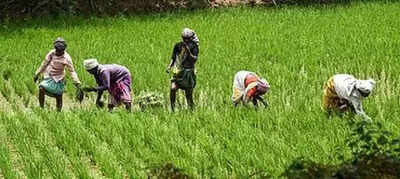 They collectively wrote to Union ministers Shivraj Singh Chouhan and Bhupender Yadav, flagging that the transfer on the upcoming world discussion board in Peru would in impact dismantle India’s capacity to find out how, when and by whom its agricultural genetic sources are accessed.The problems, together with the proposed modification, is scheduled to be mentioned on the upcoming eleventh session of the governing physique of the Worldwide Treaty on Plant Genetic Sources for Meals and Agriculture (ITPGRFA) in Lima, Peru, throughout Nov 24-29.The organizations, led by Asha (Alliance for Sustainable and Holistic Agriculture) Kisan Swaraj, demanded that the federal government appoint a properly skilled multilateral negotiator to attend negotiations in Lima, who can shield the nation’s pursuits, particularly the pursuits of the custodians of plant genetic sources, the nation’s farmers.Of their letter to the ministers, the civil society teams mentioned, “The draft package deal, if adopted, will pressure India to share the genetic wealth with the International North (developed nations) the place the massive agribusiness, huge tech, multinational seed corporations, biotech business, main gene banks, and analysis organizations are situated, however with out accountability and transparency measures in place. “As these actors would have the ability to entry all of the Indian Plant Germplasm from nationwide collections, worldwide gene banks, and CGIAR establishments with out informing the nationwide authorities of the supplier nations, and so they should simply signal a precarious Normal Materials Switch Settlement (SMA) adopted by the GB of the Plant Treaty.”Their letter got here days after a gaggle of scientists wrote an identical letter to Chouhan. The scientists raised objections over a proposed transfer to tweak provisions of profit sharing on use of genetic sources. The scientists flagged that the present proposals to “improve” the treaty’s multilateral system are basically unjust and pose an instantaneous, existential menace to India’s sovereign rights over its huge genetic wealth and the basic rights of its farmers.Genetic sources are presently shared underneath legislation for analysis and developments in drugs and agriculture. It’s largely believed that the complete entry to such sources, as an alternative of a negotiated entry, might considerably compromise the nation’s sovereign rights over its personal genetic sources and override home laws, like India’s Biodiversity Act.
They collectively wrote to Union ministers Shivraj Singh Chouhan and Bhupender Yadav, flagging that the transfer on the upcoming world discussion board in Peru would in impact dismantle India’s capacity to find out how, when and by whom its agricultural genetic sources are accessed.The problems, together with the proposed modification, is scheduled to be mentioned on the upcoming eleventh session of the governing physique of the Worldwide Treaty on Plant Genetic Sources for Meals and Agriculture (ITPGRFA) in Lima, Peru, throughout Nov 24-29.The organizations, led by Asha (Alliance for Sustainable and Holistic Agriculture) Kisan Swaraj, demanded that the federal government appoint a properly skilled multilateral negotiator to attend negotiations in Lima, who can shield the nation’s pursuits, particularly the pursuits of the custodians of plant genetic sources, the nation’s farmers.Of their letter to the ministers, the civil society teams mentioned, “The draft package deal, if adopted, will pressure India to share the genetic wealth with the International North (developed nations) the place the massive agribusiness, huge tech, multinational seed corporations, biotech business, main gene banks, and analysis organizations are situated, however with out accountability and transparency measures in place. “As these actors would have the ability to entry all of the Indian Plant Germplasm from nationwide collections, worldwide gene banks, and CGIAR establishments with out informing the nationwide authorities of the supplier nations, and so they should simply signal a precarious Normal Materials Switch Settlement (SMA) adopted by the GB of the Plant Treaty.”Their letter got here days after a gaggle of scientists wrote an identical letter to Chouhan. The scientists raised objections over a proposed transfer to tweak provisions of profit sharing on use of genetic sources. The scientists flagged that the present proposals to “improve” the treaty’s multilateral system are basically unjust and pose an instantaneous, existential menace to India’s sovereign rights over its huge genetic wealth and the basic rights of its farmers.Genetic sources are presently shared underneath legislation for analysis and developments in drugs and agriculture. It’s largely believed that the complete entry to such sources, as an alternative of a negotiated entry, might considerably compromise the nation’s sovereign rights over its personal genetic sources and override home laws, like India’s Biodiversity Act.

